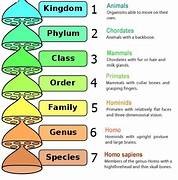PROMPT 6
How we organize and classify knowledge impacts the ways we access, build and perceive various data and information. If the knowledge is organised it can improve learning, collaboration and a good comprehension.
It is very important for shaping our understanding of the world and influencing what we know. The structure in which knowledge is organized provides a framework to understand any complex information by allowing people to make connections between this data acquired.
Does it affect what we know?
If the knowledge is classified systematically it can be accessed and retrieved easily and efficiently. The process of organizing this knowledge could bring in bias from various cultural, gender and socio economic perspectives as each one has a different way to organize information based on their priority or upbringing or exposure. As teachers we rely on specific structure to teach our subjects and educate students in the form of course curriculum. This definitely influences the values and perspectives of students holistically.
As technology is progressing, we seem to be more organised and interconnected with information especially with hyperlinks and google, bing search engines as well as SEOs. New knowledge is also acquired from a mixture of various ideas from various sites and thus new perspectives and reclassification and reorganization of information is possible.
Limitations of classification and organisation
Classification and organisation have limitations too like too much over simplification of in-depth discussions and ideas. Such reductionist methods do not give the required nuances to understand few phenomena that cannot be closed with simple analysis especially with varied new perspectives or evolving paradigms. Acquisition of new knowledge gets difficult if there are no innovative ideas in case all the knowledge is completely organised and structured rigidly. This may lead to exclusion of minority and other culture voices and thus creates bias, promoting only the dominant culture’s knowledge interpretation. Due to this rigidity, people may not be open to alternative perspectives or any new updated theories.
Additionally, with a lot of information across internet and everywhere it is important that reliable sources are very important. Not everyone has access to technology and so there is a disparity of knowledge access too. Finally in this whole process of organising knowledge, there are numerous ethical issues involved like what information is appropriate, who makes these decisions and how are these biases addressed. Therefore, it is crucial that a balance must be there between various perspectives, structure and all other challenges discussed in order improve our comprehension.
Examples
Examples in Maths like symbols and notations. They enhance communication and clarity, however if my language teacher doesn’t understand these notations this might be an obstacle for her as it confuses or scares her. Even though notation is a powerful tool to express complex concepts well, it is more beneficial to the mathematical community rather than others. Likewise, artistic movements are classified differently by art historians into various periods which could have been oversimplifying the rich diversity within each movement.


1 thought on “How does the way that we organize or classify knowledge affect what we know?”
Comments are closed.